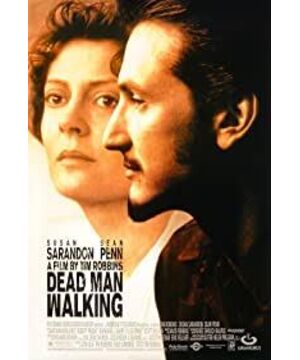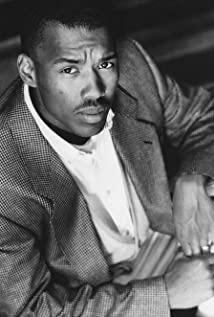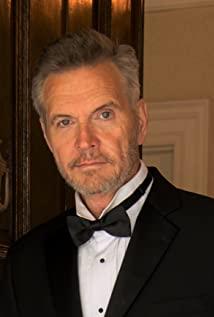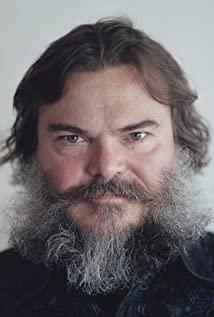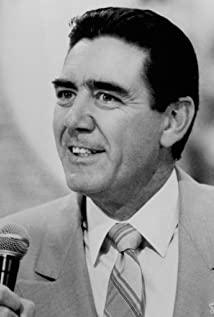Waiting for death is a kind of physical and mental torment and torture, and his pain is far higher than the instant and complete physical annihilation! As the criminal lawyer Beccaria said, "the heaviest punishment is its long continuation in time rather than its temporary severity".
At the beginning of the movie, we are told that Matthew is a death row prisoner waiting to die, but obviously, he cannot accept the sentence he received safely. From his point of view, he did not kill, but in another main criminal Vitello. Under the instigation and coercion, Vitello participated in rape and murder, and it was Vitello, not himself, who should be primarily responsible for these crimes. However, in fact Vitello had the money to hire a good lawyer, convincing the jury of the evidence against him. There was "reasonable suspicion", and he was eventually sentenced to life imprisonment, but he himself was to be executed. After the death sentence was pronounced, because there was no money, and no lawyers were willing to help him appeal or apply for amnesty (remember that the movie also mentioned that the defender who defended Matthew was also mentioned in the movie. Lawyers do not have the experience and ability to deal with death penalty cases at all, they are lawyers dealing with tax cases), in addition, Matthew's inability to plead guilty is largely rooted in his own prejudice against social justice and anti-government ideology, which is of course different from his own. His family background, life experience and various injustices in social reality have a lot to do with his rejection and attack (Matthew always reveals his views on racism, the difference between rich and poor, terrorism, and even the prejudice against the Nazis). Despite this, the film did not cast too much despair and depression, but arranged for the appearance of nun Helen, a kind nun who was born into a wealthy family and devoted herself to community relief activities. In the name of probation and the opportunity to save sinful souls, he did not hesitate to hire a lawyer for Matthew at his own expense, investigate and collect evidence, and bear the blame and misunderstanding including family members, community members, victims' families, and public opinion. But it gave us a real sense of the nobility, purity, and universal love that a nun should have.
Returning to the topic, regardless of whether the death penalty exists or not, at least one thing can be asserted: even the execution of the death penalty for heinous crimes should also reflect tolerance and compassion. Their physical annihilation has already given them the punishment they deserved, but also deserves final forgiveness before they end up in hell (and possibly heaven)? (I’m not sure here, but it’s natural to have Christian feelings, and I’m not a religious believer, so I have doubts about this), even if I don’t get the forgiveness of the victim’s family or society (this point It is really difficult to do. For sins, especially those that hurt their loved ones, how many people can completely extinguish the fire of hatred, even if the other party has paid the price for it. This is also shown in the movie, the woman's victim's mother Mentioned that when they asked her brother who was a dentist to identify the corpse, facing the horrific cold corpse of a loved one, this person who had always opposed the death penalty changed his position completely), at least let the death row inmate finally get his own Redemption, and regaining the lost personality and dignity, is of course more like a kind of religious sacrifice, which is used to save the lost human soul and get rid of the sinful body forever. In this regard, we really have to admire the humanistic care of Western countries for the execution of the death penalty. They not only give the death row prisoner the right to provide any evidence and relief until the execution of the death penalty, but also arrange some religious repentance prayers and other activities at the request of the prisoner before execution. , the film also mentioned that after Matthew was taken to the new "single room" where he was about to be executed, 10 guards were arranged to guard him, and guards came to monitor him every 15 minutes for fear of committing suicide. The execution time was arranged at In the middle of the night, the psychological impact of the public on the death row prisoners was avoided to the greatest extent.
If the execution is simply seen as a "legal violence" of icy "state violence", then it is really difficult for us to understand everything that this film took more than two hours to show. The reason why the role of Helen is arranged as a nun rather than a member of a general society such as the "Anti-Death Penalty Movement Association" is mainly because the death penalty is not just a simple socio-political issue (about the state system, the rule of law, politics, order, etc.). etc.), is also a question of karma, love and hate, and even the transcendental dimension of here and there, where morality and religion play a major role.
From the Christian view of supreme love, no matter how great a sin a sinner commits, even if he is a murderer, mankind has no right to hate him; not only that, but mankind should try to love and help him as much as possible so that he can repent so that Let him be reborn. From the standpoint of religious equality and love, it is absolutely impossible to agree that human beings have a system of the death penalty, because life is a "perfect being", and no one has the right to kill at will; not only that, but human beings should help the sinner to repent and regenerate, so as to truly honor God's love (quoted from Liu Zhengzong's "On Tolerance"), of course, there are different understandings of this in the Old Testament and the New Testament. Religion looks at all human problems from the standpoint of the highest love and justice; its purpose is to hope to establish the value of eternal love and justice in the human world, and its stand is the pursuit of eternal morality, not utilitarianism (quoted from Liu Zhengzong's "On Tolerance"). Just as most Christian countries have abolished the death penalty, all movies involving the death penalty are filled with religious sentiments without exception. Since the crucifixion of Jesus, the world has been redeemed, and the world order has entered a new stage, the stage of the New Testament. In the New Testament, the words "blood for blood" are no longer seen. The blood of Jesus finally condensed into two big words: tolerance. (Quoted from Pan Jun's "A Movie About the Death Penalty")
Regarding "tolerance", the Bible says, "If you forgive others' transgressions, your heavenly Father will also forgive your transgressions; if you do not tolerate people's transgressions, Your heavenly Father will not tolerate your transgressions.” (Matthew 6:14) Regarding “loving your enemies,” the Bible says, “Love your enemies and pray for those who persecute you. Be the son of your heavenly Father; for he makes the sun shine on the good and on the wicked; the rain falls on the righteous and on the unrighteous." (Matthew 6:43)
Here are a few selected passages from the classics, It can help you realize the true meaning of the movie:
---When Helen gave Matthew spiritual counseling for the first time, Matthew mentioned that he had been reading the Bible recently to find "loopholes" (a joke in the film), and Helen then mentioned about Jesus alone. Facing the spirit and meaning of death, in her words: "His love change things", people finally found people who respect and love them under the inspiration of Jesus' fraternity, let them understand their own value of survival, and they have since then. dignity and strength. But when Matthew said that Jesus was somewhat similar to himself, Helen immediately retorted: "He is completely different from you. He changed the world with love, and you saw two young people being killed.
" There is a classic debate between Sister Helen and the priest about the execution of the death penalty, which, although not long, highlights the stark differences between the Old Testament and the New Testament on this point. The "Old Testament" tells people to give blood for blood, but the "New Testament" says to have mercy
- Helen fainted because of weakness and was taken to the hospital, so she couldn't visit Matthew, and the next day In Matthew's terrified expression and chattering complaints, we can see that he is so spiritually dependent on Sister Helen at this time. This time, Helen and Matthew have another conversation about facing death, this time more clearly pointing out the core idea of the film. Helen said, "Matthew, atonement is not a way to go to heaven for free, only Jesus is responsible for paying the price, you have to take responsibility for your own redemption, and you have to work hard to atone." "John 8, Jesus said ' You shall know the truth''the truth shall set you free'" and this freedom is not necessarily physical freedom, but higher spiritual freedom and liberation, just as Helen said at the end: "If you want to die , I want you to die with dignity, and if you do, you must be responsible for the deaths of Walter and Hope."
---The parents of the male victim also had different feelings about this unfortunate "bereavement" They understand each other in their own ways. As said in the movie: "We are just ordinary people, and many couples who have lost children end up in divorce." After all, no one wants to live in a sad family forever!
---In the film, a dialogue between Helen and Officer Trapp, a member of the death penalty escort team, also showed her attitude towards the execution of the death penalty from the perspective of law enforcement. Legally, they punish criminals resolutely and ruthlessly, and believe that they are prisoners They deserve what they deserve, but morally and emotionally, they'll also be sympathetic and sentimental (though the cops in the movie try to hide it) and admit that the night of execution will be a sleepless night.
---In the "family reunion" before the execution, the brothers got together again to talk and laugh. Although it was a little stiff, this kind of sincere family care also made Matthew forget the fact that he was about to die. , until his mother talked about his funeral inappropriately (God, this mother is really good enough!) This forced laughing talk ended, and the room fell into a dead silence.
---Confession before the execution. After the Federal Court refused to give Matthew the last chance, it was obvious that Matthew had no chance. Complete despair finally poured out. Except for Sister Helen next to him, he had nothing left. Relying on, perhaps because of spiritual despair, perhaps because of the inspiration of the true love of the nun and his family, Matthew finally confessed his guilt! Helen gladly promises to give Matthew a loving face when he is tortured. Before the execution, Matthew said his last words: "Mr. Drake, I do not want to leave this world with hatred, I beg you to forgive my sins. I have lost you a child, and I am deeply sorry. Mr. Percy , madam, I hope my death can comfort you. I just say that it is wrong for anyone to kill anyone, whether it's me, you or the government."
- Matthew's funeral, although only a few people, but in addition to Sister Helen, we also see Mr. Drake (father of the man's victim), who says he came involuntarily despite being full of hatred. As Helen said to him: Eliminating hatred is not just something that can be done simply by relying on faith, but requires joint efforts. "
Let love forgive everything, and let all people die with dignity in the eyes of love. After all, there is a kind of pain that only God can understand.
View more about Dead Man Walking reviews


